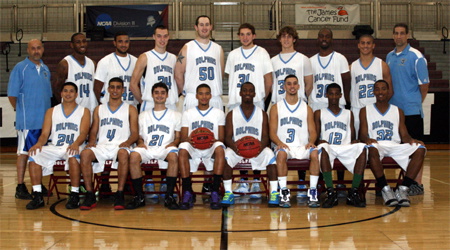[youtube]http://www.youtube.com/watch?v=Li4jZLAoRZ0[/youtube]The Legal Studies Institute (LSI) at the College of Staten Island (CSI) presented “Choosing Not to Choose: Autonomy, Paternalism, and Public Policy,” its inaugural annual lecture that covers Law, Philosophy, and Public Policy.
The presenter was Cass R. Sunstein, Professor at Harvard Law School and founder and director of the Program on Behavioral Economics and Public Policy. Previously Mr. Sunstein was Administrator of the White House Office of Information and Regulatory Affairs. He has testified before congressional committees on many subjects, and he has been involved in constitution-making and law reform activities in a number of nations.
The presentation discussed how governments and private organizations sometimes make “default” choices for individuals—for example, when they select a health care or retirement plan for them unless they opt out of it. Alternatively, these organizations sometimes force individuals to make an active choice between two or more alternatives as a condition of employment or the receipt of some other benefit or service.
Professor Michael Paris, coordinator of the LSI at CSI, says the presentation attempts to answer some philosophical questions: When should organizations, sometime called “choice architects,” use defaults to make or encourage particular choices for individuals (which is a kind of paternalism), and when should they force individuals themselves to make their own active choices (arguably another kind of paternalism)?
“Drawing on his vast knowledge in law and behavioral economics,” Paris notes, “Professor Sunstein examines the puzzles and paradoxes of institutional rules and freedom of choice in many different contexts.”
“Choosing Not to Choose: Autonomy, Paternalism, and Public Policy” was sponsored by the Office of the Provost, the Dean of Humanities and Social Sciences, the Student Government Association, and the Legal Studies Institute.
Mr. Sunstein has authored hundreds of journal articles and more than 20 books, including Worst-Case Scenarios (2001), Republic.com (2001), Risk and Reason (2002), Why Societies Need Dissent (2003), The Second Bill of Rights (2004), Laws of Fear: Beyond the Precautionary Principle (2005), Nudge: Improving Decisions about Health, Wealth, and Happiness (with Richard H. Thaler, 2008), Simpler: The Future of Government (2013) and, most recently, Why Nudge? (2014) and Conspiracy Theories and Other Dangerous Ideas (2014).
ABOUT THE LEGAL STUDIES INSTITUTE
The Legal Studies Institute is housed within the Departments of Political Science and Philosophy. At the core of the LSI is a new academic program of study, a minor in Legal Studies. Students opting to minor in Legal Studies will have access to introductory and upper level courses in law and philosophy, American constitutionalism, law and society, criminal law and procedure, and law and public policy. Students in any major may minor in Legal Studies. For more information, visit the Legal Studies course catalog webpage.
The LSI also offers an array of counseling services and co-curricular programs and events for students interested in careers in law and/or public policy. It also offers pre-law advisement and career counseling services to all interested College of Staten Island students and graduates. Workshops or panel discussions are held each year about the law school admissions process and career options in law and related fields. We host specialists in LSAT preparation, deans of admission at area law schools, and attorneys practicing in various practice fields, all for the purpose of providing students with access to the practical knowledge and networking opportunities they need to succeed in law school and the profession beyond. The LSI also sponsors and coordinates student internships in law. Students receive college credit for legal internships in a variety of practice settings, including the Staten Island District Attorney’s Office, Legal Aid’s Criminal Defense and Civil Litigation Divisions, and small firm practice. In conjunction with the Provost and the Dean of Humanities and Social Sciences, the LSI sponsors an annual lecture which brings a prominent legal scholar or practitioner to our campus each year.

![[video] Institutional Rules and Freedom of Choice: Who is the true architect of freedom?](https://csitoday.com/wp-content/uploads/2014/09/cass.sunstein.jpg)













